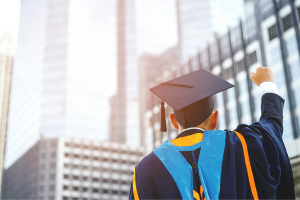Young Children’s Voices in Mathematical Problem Solving
Contributed by Dr Ho Siew Yin and Sng Wei Qin Abbie, from NTUC First Campus, for SingTeach Virtual […]
Read More
This article is based on the symposium that was presented during NIE’s Redesigning Pedagogy International Conference (RPIC), a three-day education research conference that took place from 30 May to 1 June 2022.
Presented by Dr Betsy Ng, Dr Matthew Gaydos, Dr Elizabeth Koh and Dr Munirah Shaik Kadir, and Dr Melvin Chan from NIE’s Office of Education Research (OER), this symposium highlighted unique perspectives of lifelong learning and approaches to facilitate students to learn independently. The presentations, which are summarized below, provided both theoretical and practical perspectives on lifelong learning and related issues in education.

This symposium on lifelong learning focuses on empowering learners to be future-ready and nurturing them to be lifelong learners. Lifelong learning is pertinent in educational contexts and real-life situations. With the relentless global change, learners need to embrace a positive attitude towards learning and develop a sense of agency to thrive in volatile, uncertain and complex contexts of learning and living.
Lifelong learning refers to continued learning throughout one’s lifespan or learning for life. From an educational initiative to a pedagogical paradigm, it is increasingly important to foster lifelong learning in schools and empower our students to be future-ready. From an educational psychology perspective, lifelong learning refers to motivations for learning and the development of competencies that may be useful across one’s life. From a social and education policy perspective, lifelong learning relates to the ability to handle change and transition in life, especially in response to rapid technological and global changes. The term “lifelong learning” can thus be explored from multiple perspectives, depending on the context. There are potential challenges of implementing lifelong learning in schools such as the school culture and climate in support of student agency.
Games and play, given their ubiquity and the growing body of work supporting their role in formal and informal learning, provide particularly useful frameworks and theories for understanding lifelong learning. Starting with early childhood development and continuing through post-work senior life, games and play have been well-documented in ways that people learn. New directions for research in this area should seek to better understand the preparatory nature of playful learning across the life. By coordinating efforts across the varied disciplines that have studied games and play, we may identify new avenues for research and ways to better support learning across contexts and over time.
In recognizing that it is not just technology alone, but sound pedagogies that optimize technological affordances to prepare future-ready learners, a techno-pedagogical approach was designed and refined for WiREAD+. The techno-pedagogical design of WiREAD+ has two key learning affordances: (i) multimodal social dialogic learning (a learning space with scaffolding scripts to guide students’ critical discussions of texts), and (ii) dynamic visual learning analytics.
These affordances are underpinned by four embedded learning and pedagogical frameworks: Multiliteracies pedagogical framework, Dialogic learning, Assessment for learning, and Computer-supported collaborative learning. Taken together, this design allows teachers to integrate appropriate multimodal articles in their lessons, scaffold students’ reasoning with pedagogical scaffolds, and continuously monitor learning progress and adapt pedagogical strategies to stimulate students’ engagement and rich peer-to-peer critical interactions around texts, both during and beyond formal class time.
The research findings suggested that WiREAD+ enhanced students’ content knowledge, enriched their learning experiences, and encouraged them to think critically. Thus, this tool has potential to promote lifelong learning as it motivates students to be active learners, enhances the development of 21st century competencies, and supports both online and face-to-face learning, as found in the study.
This presentation was based on the project DEV 02/18 EK: WiREAD+: Augmenting The Validated Prototype Design Of A Web-based Collaborative Critical Reading And Learning Analytics Environment Towards Scalability Readiness.
Post-school readiness relates to the attainment of necessary knowledge and competencies that support successful transition to higher education careers, and consequently have occupied the interests of researchers, policymakers, practitioners and the public. While educational pathways are generally unproblematic given the high participation in post-secondary education in Singapore, uneven lived experiences, unmet expectations and uninformed choices, can hamper continuous learning and well-being.
Research from a recent large-scale multi-cohort study of post-secondary educational transitions in Singapore offered insights of the pathways that students take after leaving secondary school, as well as various personal, contextual and educational factors that influence these choices and the relationships with positive youth outcomes. Findings revealed that while most were satisfied, a quarter wished they had chosen different educational pathways. Further analysis revealed that this group was associated with certain personal and socio-educational characteristics, suggesting that regrets about educational choices are more than a fleeting transition and may incur personal and social cost. Agency appears to have an impact. Post-secondary students who did not regret their educational choices decided it on their own and were more engaged in career-related activities.
This research contributed to lifelong learning research by highlighting awareness of the challenges and opportunities that young people face and the resources they have access to as they negotiate youth and education pathways.
Finally, this symposium provided practical insights to various aspects of learning and teaching to promote lifelong learning. Through discussion of the issues involved in lifelong learning, educators are encouraged to consider how we can nurture lifelong learners in schools and prepare them for the complex world.
This presentation was based on the project OER 06/21 MCCY: Examining educational transitions and pathways in Singapore: From secondary to post-secondary.